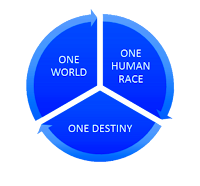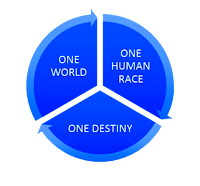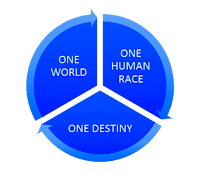NIGERIAN STUDENTS ATTACKED IN INDIA - ARE INDIANS RACIST? PART 3.
Some of the people of India are apparently finding it difficult to label the attacks of criminal elements in their population, on African students, as 'racist.'
It is not clear whether this reluctance is because based on the false premise that 'racism' is a 'white versus black' issue.
Or that, since most, if not all Indians are 'people of colour', like most Africans, then the former cannot be 'racistic' towards the latter.' Which is clearly not the case.
People do not get to know each other and gain the opportunity to disabuse themselves of their prejudices and misconceptions by being separated.
Forcefully or voluntarily, on the basis that 'it will make it less difficult to defend them.'
Separation makes you a more accessible target for those who wish you harm; it reinforces 'otherness', you as 'an outsider'.
Whereas the intimacy of the African students having the freedom to mix and interact with ordinary Indian society, diminishes the sense of 'them being different', of 'them not belonging.'
Some Indians might be resistant to give the label of 'racism' to the motive for the violence against the African students. Be that as it may, they need to ascertain the cause/s of the problem. If it is to be appropriately addressed.
Prejudice and misconceptions can lead to hatred and intolerance, which can lead to violence.
Indian society is very complex, with religious, caste, social status, and ethnic affiliations periodically leading to bloody conflict. So, it is not very surprising, if many Indians do not appear greatly outraged by the now regular attacks, which are being made against African students studying in India.
In the end, it is not so much a matter of whether Indians label the attacks 'racist' or criminal acts, especially when the latter should be eliciting greater opprobrium and effective action from the authorities.
Rather, it is that of how do the India's national and state governments, the police and relevant authorities, and, yes, the Indian people, prevent these actions from being repeated.
Or lessen the recurrence of them? Part of the answer will lie in how does the Nigerian and Indian governments respond to 'communal' and 'ethnic' outrages in their respective countries?
It is sometimes too easy for national governments to exploit attacks on their nationals, in other countries, for political reasons. While appearing impotent or disinterested when violent outrages are perpetrated against their own citizens, by some of their other citizens.
We have seen this happening in both India and Nigeria.
To be continued.











Comments